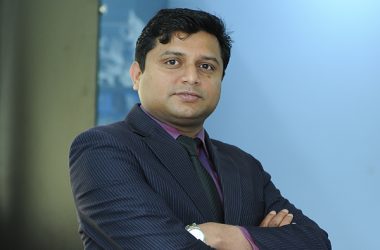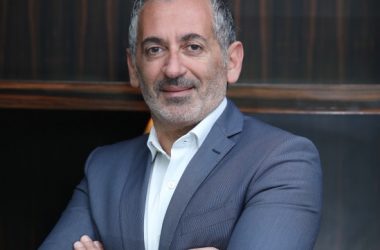 Although young to the UAE, the Paris Sorbonne University Abu Dhabi is making the right investments to offer a competitive learning and campus experience. Pallavi Sharma reports.
Although young to the UAE, the Paris Sorbonne University Abu Dhabi is making the right investments to offer a competitive learning and campus experience. Pallavi Sharma reports.
Opening the doors of the renowned Paris Sorbonne University in Abu Dhabi (PSUAD) to the nation’s rapidly expanding student community in October 2006, was a step towards achieving the UAE government’s vision to becoming one of the top five education destinations of the world.
Since its modest beginning in 2006, PSUAD has continued to grow and even moved to a new campus on Abu Dhabi’s Reem Island. The university today schools over 700 students representing 60 nationalities. This exponential growth is what led the the government of Abu Dhabi, together with the Abu Dhabi Education Council (ADEC) and the university’s senior management, to undertake a series of projects to streamline operations and provision the institution’s expanding academic and administrative responsibilities, according to CIO, Mohammed Javeed.
“We at the PSUAD have made all the necessary efforts to provide our students the same learning and living environment that he or she would experience at our parent campus in France,” he says.
All under-graduate programmes are taught in French, and faculty members are flown in from the parent campus in France, based on their scheduled lectures and tutorial sessions.
“Being able to maintain this environment is one of the key considerations when making technology or vendor choices. The Paris-Sorbonne University has a rich history and reputation that cannot be compromised, irrespective of location,” explains Javeed.
Javeed boasts of an extensive experience in managing and servicing IT infrastructure at a number of prominent higher education institutions including Qatar University and the UAE University.
“Over the last 18 years, I have had the privilege of working with almost every vendor with a significant presence and notable solution. The education vertical is quite niche with only a few reputed players in the region (compared to the more developed markets of the world). So while we do consider a vendor’s previous track record, we also look for ones that I have previously worked with. The familiarity with the vendor helps us reduce the amount of time spent investigating their ability to meet our specific requirements, and provisions a degree of trust between the university and the solution provider that would normally take years to build,” he says.
He also adds that the university’s tech investments and vendor choices are often based on recently developed strategic alliances between vendors like Oracle, Cisco and ADEC and the Abu Dhabi government. This falls in line with the fact that the university is funded by ADEC and the Abu Dhabi government.
Since joining the university in October last year, Javeed says that the university’s IT budget has increased at least five fold.
Fresh start
“Until a year ago, the requirements from IT were very basic, everything was paper based or done manually, and there were no administrative systems or hardware in place, meaning that IT budgets were very small. Today, I am in charge of establishing an infrastructure and developing a complete unified digital campus. This requires a significant increase in IT expenditure and resources,” he says.
“The first step following the approval in the budgets was expanding the existing IT team of four people. Over the last one year, we have brought innew experienced members to our team making us a team of 12 people that are committed to achieving the university’s goals and capable of servicing the expanding infrastructure,” Javeed adds.
According to Javeed, over the last one year the university has invested in three key implementations, beginning with the deployment of Oracle ERP to automate and connect the disparate processes associated with HR, finance, payroll and other administrative functions. The university then went on roll out Cisco IP TV across the student dorms and other recreation areas to provide an economical and practical way for students to stay connected to their families and keep up to date with developments across the world. Finally, PSUAD embarked on what they call the Talaki Digital Campus Project built on SunGard Higher Education’s Banner Digital Campus to improve services, promote student success, manage enrolment growth and enhance decision making through greater access to information.
The Oracle ERP systems was an initiative taken by ADEC in 2010, whereby the authority deployed the Oracle Fusion Middleware suite of applications including ERP and Identity Management across a number of prominent national institutions. These included PSUAD, Emirates College for Advanced Education (ECAE) Abu Dhabi Vocational and Training Institute, and University of Mohammad 5 -Abu Dhabi (UM5A).
“The sole aim of this project was to effectively consolidate different systems such as HR, procurement and finance, within the university. The tool was implemented to save time and encourage the seamless exchange of information by centralising key processes on a common platform. The centralised platform was based in a unified data centre that met ADEC’s needs. We also invested in a new blade server environment comprising a combination of hardware from Dell and HP,” says Javeed.
“The challenge with this project was that our users were accustomed to manual processes, and therefore we needed to consciously invest time and efforts towards changing the culture. This involved empowering the users with the knowledge necessary to efficiently leverage the tools provided by the system to not only better operations but make their roles significantly easier. To address this challenge, we invested in long training sessions and hired two consultants, one for HRMS processes and another for financial units, to help users go through the process of knowledge transfer,” he adds.
“The process of change management also included the execution of a strict code of conduct. We made it very clear to all the departments that no claims or policies could be submitted on paper or excel, even request for benefits needed to submitted online and this encouraged them to continue using the system until they were well acquainted with it. Today, the staff is capable of managing and operating the system with minimum reliance on the vendor or a third party,” Javeed says.
Tech for the best
PSUAD essentially provides a combination of programmes from two French universities – the Paris-Sorbonne University, dedicated to Arts and Humanities, and Paris-Descartes University, specialising in law, political science and economics. According to Javeed, the parent universities have independent databases that resulted in making the role of administrative staff at PSUAD quite complex.
“We need to register student records and information across the relevant parent data bases in Paris based on their course major in order for them to be eligible for their degrees. Because we had no physical systems in place and student information and data was manually collected and documented on paper, this task was time consuming and prone to significant human error,” he says.
The first phase of the Talaki Digital Campus project, which went live in early October 2011, saw PSUAD deploying SunGard Higher Education’s Banner Student solution as a foundation for the digital campus environment.
“In order to achieve this, we deployed a system that provides students, faculty and administration with a 360 view using Single Source of Truth (SSOT), a practice of structuring information models and associated schemata such that every data element is stored exactly once. This system was hosted on SunGard’s servers- till we bought our hardware and configured it. As a result of this deployment we have achieved consolidation of student accounts and records, identified outstanding receivables. The system has enabled more coordination between the administration and finance departments to improve debt management by upto 99%,” says Javeed.
Javeed says that students can access details associated with fee assessment, examination and course schedules online. In addition to this, the university has also implemented a campus commerce system from TouchNet [a partner of SunGard Higher Education], enabling both students and their parents to make their payments to the university online using their credit cards.
Just the beginning
The university is already midway through the second phase in the project, which involves leveraging the Banner Document Management Suite, Luminis Platform, and Banner Operational Data Store. The deployment of these systems is aimed at avoiding duplication of data entry and doing away with small silos of student information, according to Javeed.
The university has also begun rolling out a BlackBoard e-learning environment, integrated with the Echo 360 lecture capture system to further enhance the learning experience for students. Javeed and his team are also working on a print and copy management or a pay-for-print project, wherein an identity management solution would be used to monitor print and paper costs.
“Following this we plan on working out a digital system to monitor our library resources and management. We are also working on a process by which students will be able to use their personal mobile devices to access all the services that make for the Talaki Digital Campus,” he adds.
PSUAD also plans to increase their IT team’s strength to 25 trained members and eventually move onto a virtualised platform. There is no doubt that with a crystal clear vision and the commitment to deliver, the team at PSUAD is all set to innovate educational institutions in the region both from an administrative and academic point of view.





